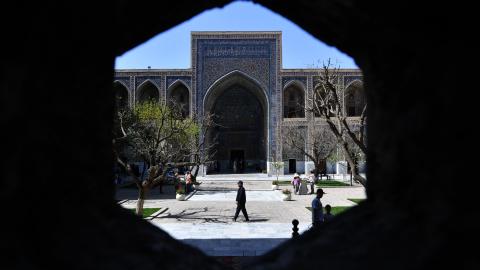Media bias consists of more than partial quotes, deliberate misreporting, and economy with the truth. Doubt that, and read the New York Times last week, reporting--on page one--"U.S. Reliance on Saudi Oil Goes Back Up: Security Concerns Rise With Gulf Imports." If you think this has anything to do with the president's decision to veto the Keystone Pipeline, think again, or look for a more balance report.
It seems that our imports from Saudi Arabia are rising, from 1.9 million barrels per day in December to 2.6 million barrels in May, and now constitute 23 percent of total imports compared with some 17 percent in December. "The potential for an obstruction of the Strait of Hormuz therefore poses a physical threat to U.S. supply as well as a potential price shock on a global level," says no less an authority than David Goldwyn, identified as former State Department coordinator for international economic affairs in the Obama administration.
And why are we taking on this added risk? It seems our refineries operate on heavy crude of the type produced by Saudi Arabia, a type also available from Mexico, Venezuela, and Canada, but not from new U.S. domestic producing areas, which produce lighter crudes. But, alas, production in Mexico and Venezuela is declining, which leaves Canada. "Several oil refining companies have found it necessary to buy more crude from Saudi Arabia and Kuwait to make up for declining production in Mexico and Venezuela, insufficient pipeline connections between the United States and Canadian oil sands fields .... There is not enough pipeline capacity to get all that the Gulf refineries want to buy to their facilities."
Adding to the problem is the fact that the moratorium on drilling in the Gulf of Mexico has cut production there by 700,000 barrels per day, the exact amount of our increased imports from Saudi Arabia, which the New York Times says "faces its own challenges ... making the stability of Saudi energy and political policies uncertain." So we are replacing safe Canadian and U.S. Gulf Coast supplies with increased imports from one of the most volatile regions in the world.
Here's the fun part. Nowhere in this long, detailed story is there any mention of the facts that the Obama administration ordered the Gulf of Mexico drilling moratorium, and refused to allow the construction of the Keystone Pipeline to bring oil from Canada's oil sands, the type that could replace Saudi oil, to our refineries. Not a sentence, not a word. One would not know that this is an election year, one in which energy policy is one of the issues being vigorously debated--unless one glanced at the page one story to the immediate right of the oil story, and noticed a long piece on Mitt Romney's taxes.



















